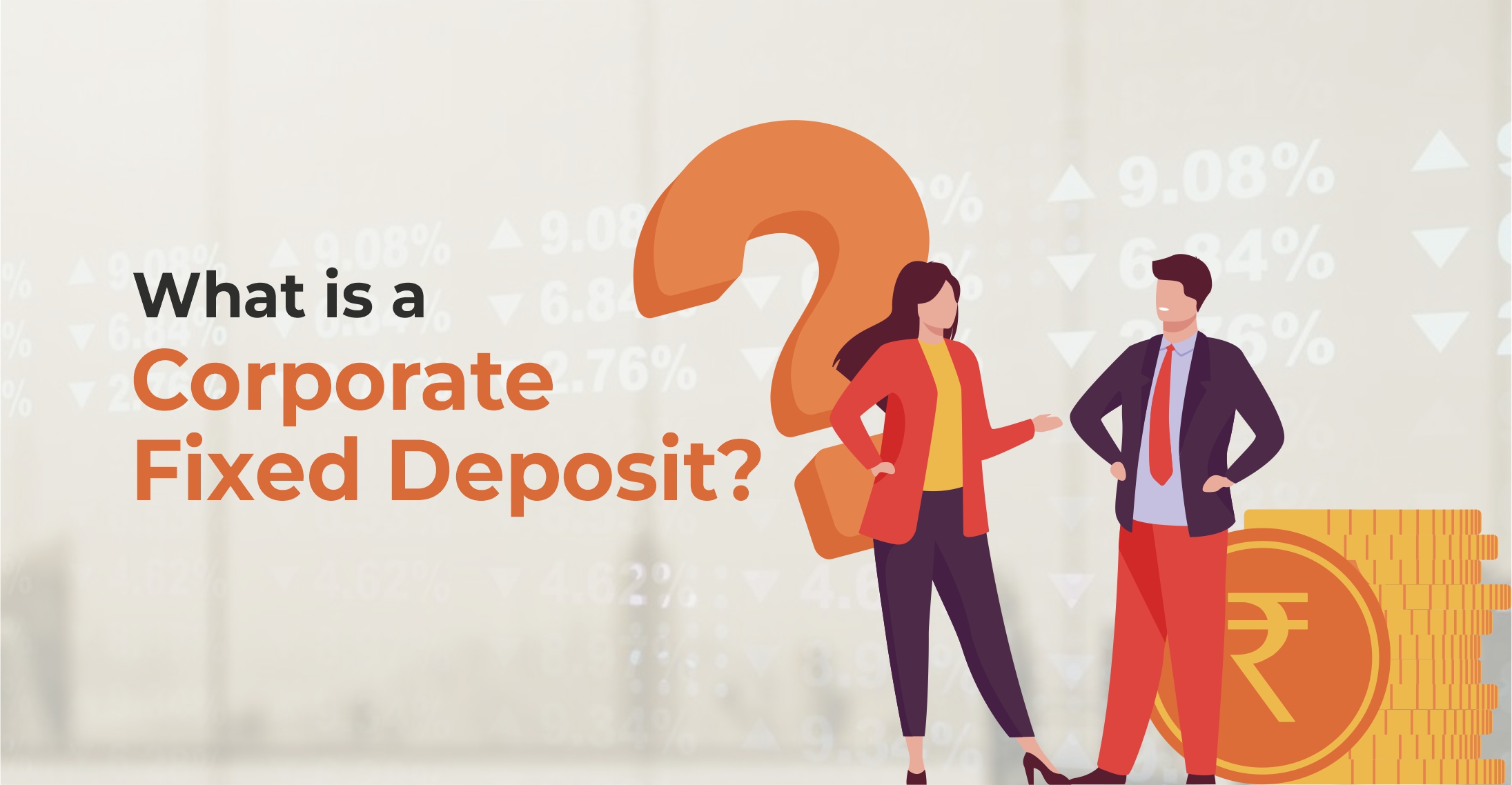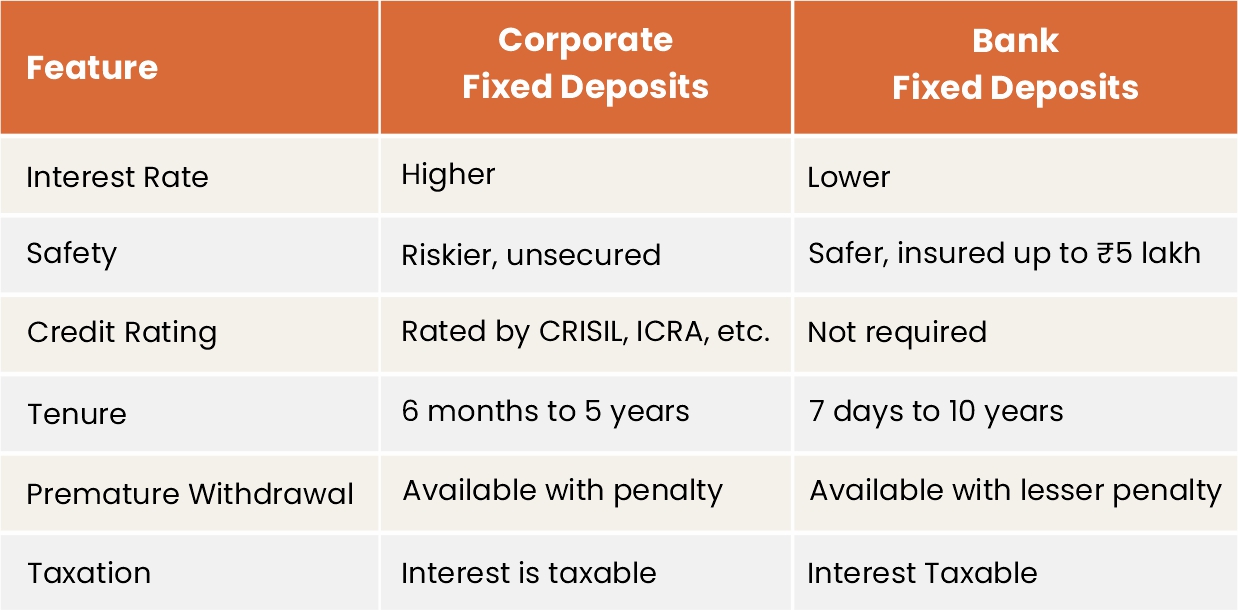
A Corporate Fixed Deposit, or Corporate FDs, is a fixed deposit provided by non-banking finance companies (NBFCs).
In comparison to the bank’s fixed deposits available, corporate FDs have higher fixed interest rates, which tends to attract the investors. It also comes with a fixed maturity period.
Corporate fixed deposits (FDs) are popular among individuals who want higher returns than traditional bank FDs. However, it is crucial for investors to know their unique features before investing.
Corporate FDs have a higher rate of interest compared to bank FDs, which attracts investors who are ready to take a little more risk in return for a higher interest rate.
The tenure of corporate FDs ranges from a few months (six months) to a few years (five years). You can park your money according to your requirements and financial objectives.
Investors have the choice of either cumulative or non-cumulative interest payout options. A cumulative FD reinvests the interest, paying both principal and interest on maturity. On the other hand, a non-cumulative FD pays interest periodically such as monthly or quarterly.
Certain corporate FDs let you take a loan against the deposit. This provides liquidity without breaking the deposit.
The conditions for premature withdrawals depend on the NBFC. Majority of corporate FDs charge a penalty when the FD is withdrawn early which might impact the overall amount.
Here are some of the benefits of investing in corporate fixed deposits (FDs):
Corporate FDs come with higher interest rates than Bank FDs to attract depositors.
Retirees or individuals seeking a regular income option can opt for the non-cumulative interest payment options and get a fixed income every month or quarter.
There is a lock-in period for corporate deposits. However, investors can liquidate them early, but they will face a penalty.
Corporate FDs come with different maturity periods. This lets investors align their maturity period with specific goals, like buying a house or funding a child's education.
These requirements help ensure a secure and transparent investment process in corporate FDs

While bank FDs (including savings account) up to Rs 5 lakhs are insured by Deposit Insurance and Credit Guarantee Corporation (DICGC), it does not insure corporate fixed deposits.
Hence, corporate FDs carry higher risk than bank FDs. As an FD depositor, you can evaluate the FDs credit ratings issued by rating agencies such as CRISIL or ICRA.
It is important to note that corporate fixed deposits give higher returns than traditional bank fixed deposits, which appeal to investors with their competitive rates and flexibility in terms of payment.
Despite the fact that they are associated with a higher risk, a strategic choice based on the credit rating and the fundamentals of the company can sometimes make them a valuable addition to a diversified portfolio.